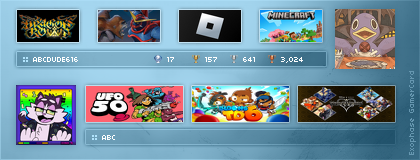I owned my first M rated game when i was... well... 3? maybe 4?
Games don't effect kids in any way possible, ya it might teach them some swear words but thats it, How the kid really is is from how they were brought up. M rated games never effected me in the slightest, i never swear, never really had a urge to hold a gun, Why? Because my parents told me not to...
I see nothing wrong with that that kid was saying, You do exactly what he said in the games, he seemed like he had fun playing it, I played GTA with friends and loved killing people in a tank at 5/6 years old. Yet we grew up perfectly normal. I honestly can't stare someone in the face and say violent games make violent kids without smirking. It just doesn't make sense with that me and my friends all experienced as a kid.
No, that is incorrect. violent imagery does effect the nervous system of children in a possibly damaging way. humans are not fully mentally developed until well into their 20s, but before 18 they are completely malleable and can be susceptible to suggestive material.
Bear in mind the typical parenting method offers rewards for what is accepted as "good" behavior. That's how our entire social system is built. Do good things, get rewarded.
Many Children who play video games are rewarded with play time when they've met any number of conditions. This teaches them that playing video games is rewarding and something they should seek. There is nothing inherently wrong with this.
Where it gets problematic is when children are exposed to elicit imagery (violence, sexual content, etc) during those rewarding play times, the brain creates a connection with the images themselves, and the dopamine and seratonin rush that is experienced when doing anything that your mind accepts as a reward (eating, playing games, being with friends, etc).
As time goes on and they keep receiving these reward hormones for experiencing these violent or malevolent images, they become desensitized. This has been proven to be the case even in adults, but in adults (normal adults) the super ego has had time to develop substantially enough that even with desensitization, they are able to differentiate between the imagery and an actual event.
For children, who's ego's and super ego's are still early in development, the differentiation has not occurred. They can (don't always, but can, depending on length of exposure, type, etc) view anything violent and their pleasure center will light up like a Christmas tree, which can lead to them believing that violent imagery and thereby violence is not only socially acceptable, but a good thing in general.
Basically, what I'm saying is that while not every child who views a violent video game will become violent, sociopathic, or otherwise, proper care should still be taken while children are developing mentally to ensure they are not overexposed to suggestive content. Children literally are unable to handle the concepts of right and wrong until late into their first decade, they learn these things through their experiences. Teenagers are struggling hand and foot with their id, while their ego's are trying to help them determine a sense of self and belonging within society.
These aren't things parents should ever take lightly, only they have the ultimate capability to help or hinder that development with the right cues and monitoring what their children are exposed to.
I also want to say that I am only three months away from having my first child. I am a fan of interactive entertainment, video games. I have worked with my wife to create a plan on how we will gradually expose our daughter to these and other forms of entertainment in a way that is responsible but also reinforces to her that we have trust in her, and that we want her to have a wide breadth of experiences even at a young age, but any exposure will be carefully thought out, planned, and supervised, so that when there are those existential questions that need to be answered, the why's and the what if's of childhood, we will be there to answer and guide her to a better understanding of her surroundings by being honest about both the context as well as our intentions.





































